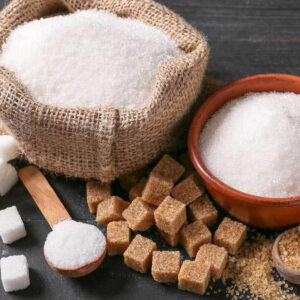Food companies consider beet sugar vs cane sugar when choosing sweeteners for different confectionery items.
Food companies consider beet sugar vs cane sugar when choosing sweeteners for different confectionery items.
Blog Article
A Detailed Look at the Conveniences and Uses of Beet Sugar Vs Cane Sugar for Sweetening Options
In the realm of sweetening, both beet sugar and cane sugar offer distinct advantages and culinary functions, albeit with similar dietary accounts. While beet sugar flaunts a neutral flavor suitable for different dishes, cane sugar improves recipes with refined caramel undertones.
Beginnings and Handling Approaches of Beet Sugar and Cane Sugar
Beet sugar and cane sugar, two predominant sweeteners, originate from extremely distinct plants and undergo different handling methods. Beet sugar is drawn out from the sugar beet, an origin veggie, mainly expanded in cooler environments.
Alternatively, cane sugar comes from the sugarcane plant, a tropical lawn. Its processing begins with gathering the cane, crushing it to get the juice, and after that steaming this liquid to develop sugar crystals.
Nutritional Contrast: Beet Sugar Versus Cane Sugar

When comparing the nutritional web content of beet sugar and cane sugar, it becomes noticeable that both types give a comparable power value. Each supplies about 4 calories per gram, mostly as sucrose, which is a simple carb. This similarity expands to their absence of vital nutrients; neither sort of sugar contains significant amounts of vitamins or minerals. Both beet and cane sugar are 99.9% pure sucrose, making them virtually identical in terms of calorie material and nutritional profile.
Nonetheless, slight distinctions might emerge from the minimal trace elements that continue to be after processing, though these are too small to influence total wellness. For example, cane sugar can preserve traces of molasses, depending on the level of refining, which might add small amounts of calcium, iron, and potassium. Beet sugar, on the other hand, normally undertakes a procedure that gets rid of these trace elements better, leading to an even purer kind of sucrose.
Culinary Utilizes and Flavor Profiles
In spite of their nutritional similarities, beet sugar and cane sugar split significantly in their cooking applications and flavor subtleties. Beet sugar, derived from sugar beetroots, commonly has an extremely neutral preference, making it a recommended option in cooking where it seamlessly incorporates without modifying the flavor account of other ingredients.
Cooks and home cooks alike choose sugars based upon these attributes. While both sugars function in a similar way in regards to sweetness and physical buildings, the minor taste difference can affect the result of a meal substantially, guiding the choice in between beet and cane sugar based on the preferred end outcome in culinary productions.
Health And Wellness Effects of Consuming Beet and Cane Sugars
Although beet sugar and cane sugar are commonly made use of interchangeably in food preparation and baking, their wellness implications can differ subtly due to their unique handling methods. Both sugars provide concerning the very same amount of calories and carbs per tsp, basically supplying similar power contributions with no inherent dietary benefits. Nonetheless, the refining procedure for each sugar can modify click site the visibility of trace minerals and substances, although these variations are usually minimal and not considerable enough to influence one's health and wellness meaningfully.
The primary wellness worry about both types of sugar concern their payment to too much calorie consumption, possibly resulting in weight gain, and connected diseases like kind 2 diabetes mellitus and heart problem when consumed in huge quantities. Therefore, no matter the resource, moderation is essential in consuming beet or cane sugars. Health experts commonly recommend Visit This Link restricting sugarcoated in any type of form to maintain optimal health end results.
Environmental Impact and Sustainability of Sugar Production

Alternatively, sugar beet handling has a tendency to produce huge quantities of pulp waste, which can be repurposed as animal feed or exchanged bioenergy, therefore reducing some ecological effects (beet sugar vs cane sugar). Ultimately, the sustainability of sugar manufacturing rests on taking on more environment-friendly farming strategies and waste management practices to decrease the eco-friendly impact of both sugar look at this web-site kinds
Final Thought
Beet sugar is remarkable for its sustainability and neutral preference, whereas cane sugar is treasured for its abundant taste. Customers must think about these variables, along with the ecological ramifications of sugar manufacturing, to make enlightened options regarding sugar usage that straighten with cooking demands and honest values.
Report this page